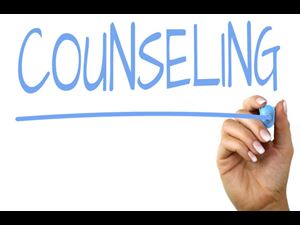Sometimes you might prefer that your child’s problems be dealt with in a different setting, separate from the school, so the information below concerns some of the other services available to young people and their families apart from regular school counselling.
At the Doctor
One step in assisting your child could be to take them for a medical check-up to see if the current difficulties have any organic causes. The doctor may suggest a referral to a paediatrician (a doctor who specialises in the medical and behavioural issues of children) or to a psychiatrist (a doctor who specialises in mental illness) for an assessment.
The doctor may also prepare a mental health plan for a referral to a professional who is registered with Medicare to provide counselling. These professionals could include psychologists (who are not doctors but have up to six years of university training), social workers, occupational therapists or mental health nurses, providing up to 10 counselling sessions per year (20 sessions may be available until July 2022 if distress is COVID-related). Medicare will pay a scheduled fee and the client will pay any gap, unless the professional bulk-bills in which case there is no charge. If paying the gap will be difficult for you the doctor can refer you to another Medicare-funded program administered by the Western Sydney Primary Health Network. Some private health insurance policies also rebate psychology services.
Medicare will also rebate up to 10 group counselling sessions per year, in addition to or instead of individual sessions.
You can ask the doctor to recommend someone, or do your research first and ask the doctor to refer you to the professional you have chosen (and probably have spoken to on the phone to get a sense of whether this is the right person for your situation). See the following:
In doing your research you may wish to ask the following:
- What's your background and training in working with children?
- Have you worked with these particular issues before? What approaches do you use?
- How do you involve parents? Do I need to attend?
- What will happen in a typical session with my child?
- How long should children and families typically work with you?
- Do you contact my child's school or healthcare providers?
- Can you work with a client of my cultural background?
- What is the cost?
Another option you may have is to use the Employee Assistance Program if your employer provides one, as these programs usually cover immediate family as well.
Organisations
Most services have intake officers whose job is to talk with you when you phone so that you can decide if the service offered is what you need. They can also suggest alternatives. Where services charge fees it is usually on a sliding scale according to your ability to pay. Most services also have waiting lists.
In the public sector
The NSW Mental Health Line (1800 011 511) is a 24-hour service designed to connect callers with the right care for people of all ages in NSW.
NSW Health provides up to 12 sessions of free child, family and adolescent counselling for people who live, work or study in the Blacktown, Doonside and Mt Druitt Local Government Areas. Phone the Mental Health Line for a referral.
NSW Health also runs the Blacktown Early Access Team (BEAT, accessed through the Mental Health Line). They see 12-24-year-olds living in the Blacktown Local Government area with major mental health problems. For children under 12, the Paediatric Mental Health Team is on the same number.
The Western Area Adolescent Team (WAAT, 9881 1230) at Mt Druitt has a focus on hard-to-reach, marginalised young people, including those who are homeless.
The Transcultural Mental Health Service can help people from culturally and linguistically diverse backgrounds to access mental health services, from childhood to adulthood, in a variety of languages (1800 648 911).
Non-government agencies
In the non-government sector, headspace at Mt Druitt (8887 5600) and at Castle Hill (8820 9995) is a ‘one-stop shop’ for young people aged 12-25 years, and their families, providing easy access to a broad range of health services including physical health care, mental health care, drug and alcohol services, and counselling. It is a consortium of agencies led by Uniting Care Mental Health, and sees young people who are eligible for referral to a psychologist under a mental health plan prepared by a doctor at headspace.
Several non-government agencies specialise in working with teens and their families. Many are based in Parramatta, Norwest, Blacktown or Mt Druitt. See this article about family counselling. RAPS (part of Relationships Australia, 9890 1500) and Unifam Counselling and Mediation (part of Uniting Care, 8830 0700) will work with the family members who live together on all kinds of issues such as arguments at home, family violence, fostering and adoption, living in a stepfamily, school problems, appropriate limits and consequences, etc.
CatholicCare Social Services, (9933 0222 - formerly known as Centacare) offers relationship and family counselling, while Blacktown Reconnect (9832 3934) also works with young people and their families.
Interrelate at Rouse Hill (8882 7850) has a long history (since 1926!) of working to strengthen family relationships.
University clinics are another option. They often charge reduced fees for therapy by psychologists-in-training who are supervised by senior psychologists. See the Psychology Clinic at Western Sydney University or Macquarie University's Centre for Emotional Health.
On the phone
Parents/carers of children 0-18-years-old can contact a 24-hour parenting helpline run by CatholicCare Sydney (formerly Centacare Sydney) on 1300 1300 52 to talk about any parenting issue.
Kids Helpline is not just for children and youth, but also is there to assist parents/carers with helpful articles on typical issues.
Where violence or abuse is occurring, including from adolescents to their parents/carers, free counselling is available through the Australian Government’s 1800RESPECT service (1800 737 732).
More helplines for students and their parents/carers are listed in the front pages of the Student Diary. HealthDirect https://www.healthdirect.gov.au/mental-health-helplines maintains a list of mental health helplines, and recently Connections Western Sydney Helpline http://ontheline.org.au/wshelpline has been established on 1300 096 273.
Going private
In the private sector there are many choices of counsellors and therapists who are not in the professions listed above. You should ensure that anyone you consult has the appropriate qualifications and is a member of a recognised professional association such as PACFA.








